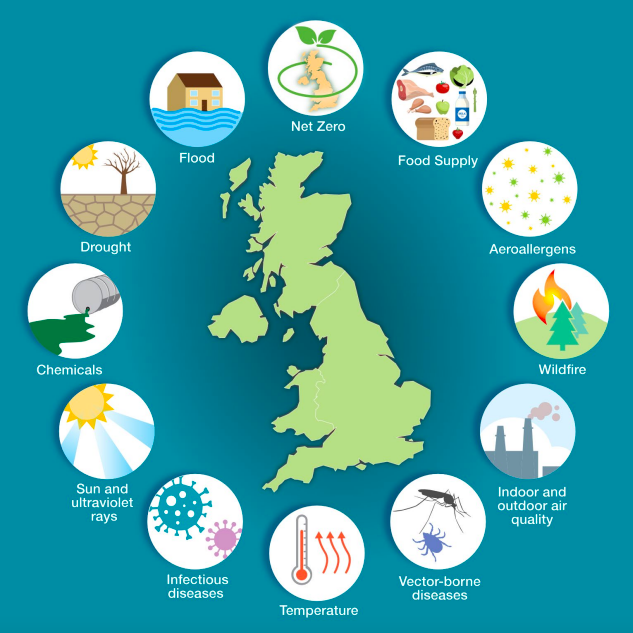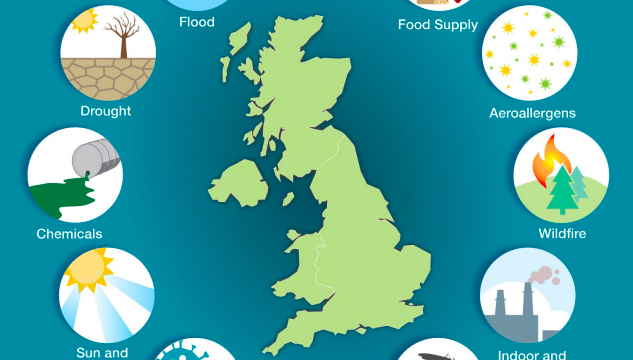UK Health Security Agency , 2023

Chapter 7 of the Health Effects of Climate Change (HECC) in the UK: 2023 report. Although there is strong evidence that climate change can affect the risk of infectious diseases, better evidence is needed to quantify the magnitude and impacts of these changes. The chapter highlights 4 key insights for public health. First, as many emerging infectious diseases are zoonotic (meaning that they are transmitted between animals and people), increased attention should be given to the ways in which people interact with wild and domestic animals and animal products, and how this can affect changing disease risks. Strong collaborations are needed with other national and international public health agencies, cross-governmental agencies and those delivering care (such as the NHS), as well as farmers, food manufacturers and the public. Second, early detection is important in responding to infectious disease outbreaks, integrating a range of surveillance mechanisms such as sentinel and routine surveillance, epidemic intelligence and genomic data in a One Health approach. Global surveillance also needs to be strengthened so that emerging diseases can be detected rapidly and controlled where possible at source. Third, climate change is an important context within which we will need to protect ourselves from infectious disease threats. Changing climatic conditions will need to be taken into consideration when undertaking risk assessments and developing public health policy and
2
Chapter 7. Effect of climate change on infectious diseases in the UK
guidelines to prevent and control infectious diseases. Finally, the impact of climate change on future pathogen risk should be considered when prioritising development of new vaccines for the UK population.
Published In: UKHSA (2023). Health Effects of Climate Change (HECC) in the UK: 2023 report



